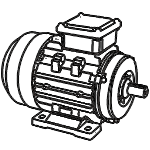Tel: +86-177 3033 8505 Posta elettronica: [email protected]
Riciclare l'alluminio
Il mercato richiede leghe sempre più leggere ed efficienti, Fare dell'alluminio il metallo del futuro per eccellenza. La sua ripresa è importante dal punto di vista economico.

Riciclare l'alluminio
A monte dei mulini a martelli è possibile installare un trituratore primario, un trituratore bialbero serie WLP dei volumi e per rendere più veloce la riduzione da parte del mulino a martelli.
Una varietà di oggetti sempre più ampia, I prodotti e i componenti sono realizzati in alluminio o nelle sue leghe primarie e secondarie. Le sue caratteristiche rendono questo metallo indispensabile sia nella costruzione di molti oggetti di uso comune (Biciclette, finestre, Caffè, and so on.) e per componenti tecnologicamente avanzati e complessi (Treni, Auto, elaboratori, aerei e molto altro ancora). Poiché non esiste in natura, l'alluminio è stato riciclato dal 1900. Soprattutto nell'odierno Economia circolare ricopre un ruolo importante. Le Riciclo dell'alluminio, che si tratti di profilo o involucro, significa dividerlo da tutti i componenti con cui è assemblato. Uno degli esempi più comuni è il riciclaggio di telai per finestre in alluminio che includono viti, vetro, maniglie e plastica con funzioni termiche.
Le operazioni di rettifica possono separare completamente i materiali aggiuntivi in modo da preservare la lega primaria di alluminio, Una soluzione ideale rispetto a un processo che comporta una colata che potrebbe creare leghe secondarie meno pregiate. I dispositivi di selezione a raggi X sono utilizzati nei nostri impianti di riciclaggio per una migliore selezione della qualità della lega di alluminio. Separano l'alluminio primario dall'alluminio secondario, Una distinzione essenziale per una migliore resa durante la colata in fonderia.
Scopri di più su tutte le nostre soluzioni di riciclaggio!
Qual è il tuo
trattamento
requisito?
Ascoltiamo le tue esigenze e possiamo fornirti le migliori tecnologie per raggiungere i tuoi obiettivi di business.
I cicli di lavorazione sono studiati per massimizzare le attività produttive, essere in grado di raggiungere il pieno recupero delle materie prime secondarie e di reintrodurle direttamente nel ciclo economico.
METTITI IN CONTATTO
WALI recupera e ricicla risorse preziose nella catena di approvvigionamento.
 Trituratore Guardiano
Trituratore Guardiano








